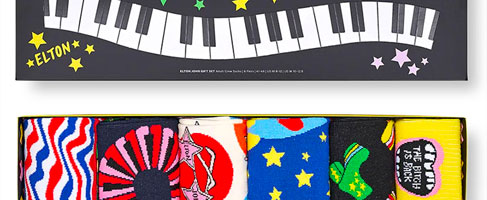Shel Talmy (August 11 1937 – November 13 2024).
Born in the summer of 1937 and hailing from Chicago, Illinois, Sheldon Talmy showed an interest in music and the technology of the recording studio from a very early age. Something of a wunderkind, by 13 Talmy was regularly appearing on the NBC-TV show ‘Quiz Kids’; a question an answer program filmed in Chicago. It was during this period that Talmy knew his future lay firmly in the entertainment business. In June 1955 he graduated from the famous Fairfax High School, the alma-matter of other music industry luminaries Herb Albert, Michael Jackson and now infamous producer Phil Spector.
After a brief stint at ABC Television he became a recording engineer at Conway Studios in Los Angeles, where studio owner Phil Yeend introduced the young Talmy to three-track recording equipment.
After a few years of experience stateside, Talmy headed to Britain in 1962, for what was intended to be the start of a five week European vacation. However the vacation wasn’t to be with Talmy instead becoming an independent record producer at Decca, working with Decca’s pop roster including the Bachelors.
In 1963 Talmy met Robert Wace, the manager of the recently formed London group the Ravens. A change of manager to former pop singer Larry Page in 1963 accompanied a change of name to the Kinks, with Talmy securing the band a contract with Pye Records. The third single that Talmy recorded with the group was the landmark recording “You Really Got Me”.

“You Really Got Me” the Kinks.
“When I first heard ["You Really Got Me"], I said, "Shit, it doesn't matter what you do with this, it's a number one song". It could have been done in waltz time and it would have been a hit” Shel Talmy.
Recorded during July 1964 over the track would evolve over various sessions from a bluesy original demo, to a slower and more deliberate original studio version which band leader Ray Davies believed to be to covered in too much reverb, burying the lead guitar. After some procrastination Pye Records agreed to a further session which we would produce the iconic sound of the classic single.
Built around power chord and a Dave Davies guitar riff, “You Really Got Me” would go on to inspire countless rock, garage and even punk groups. The distortion sound on that influential guitar track was created when Dave Davies sliced the speaker cone of his guitar amplifier with a razor blade.
One of the debunked myths around the recording of the track is that future Led Zepplin founder Jimmy Page played the lead guitar. Although Page did do some session work for Talmy, including with the Kinks, he was not present for this recording session. Talmy did however bring in noted session drummer Bobby Graham as a replacement for the recently recruited Mick Avory who instead plays tambourine on the track.

The single was released on 4th August 1964 and quickly rose to the summit of the UK charts. Due to the reaction to the track in the UK it was rush released in the US on 26th September, eventually rising to number seven and launching the band stateside. The track entered the Grammy Hall of Fame in 1999.
The use of distorted guitar riffs would continue on other Talmy produced Kinks tracks including “All Day and All of the Night”, “Tired of Waiting for You” and “Set Me Free”. Talmy would continue to work with the group until 1967 with his final single production for the Kinks being the equally iconic “Waterloo Sunset”.
“You Really Got Me” and its power chords and distorted guitar riffs would go to inspire numerous artists over the years. One early fan was Pete Townshend who has stated that “I Can’t Explain” was influenced by their contemporaries. Naturally this led to Townshend’s band the Who to seek out the producer of the track.
“My Generation” the Who.
At the time of the release of the Kinks’ “You Really Got Me” the Who were still going by the name the High Numbers. Part of Townshend’s motivation to write a similar sounding number, “I Can’t Explain” was to convince Talmy to produce the group. The song was initially played down the phone, which was enough to pique Talmy’s interest to go hear the band live. He caught a Who rehearsal at a church hall, and decided to sign the group to his production company after hearing only eight bars. Talmy quickly secured to work securing the band a contract with Decca in the US and their subsidiary Brunswick in the UK. They then set to work to record the Who’s debut album, including its iconic title track, with Talmy determined to retain the sound of the bands high energy live performances.
An iconic statement of youthful rebellion, “My Generation” has often been seen as a forebear of punk rock, particularly thanks to Roger Daltrey’s sneering delivery of the often quoted line “I hope I die before I get old”. The track itself draws on Townshend’s appreciation of American rhythm and blues, with the call and refrain vocals demonstrating the blues influence, with Townshend and John Entwistle responding with “Talkin’ ‘bout my generation” to the Daltrey lead vocal lines. The call and response is mirrored in the instrumental break with emphasis passing from Townshend’s guitar to Entwistle’s bass and back again.
The song is also widely remembered for Daltey’s stuttering delivery, with the line “Why don’t you all fff…. fade away” causing particular concern and then relief to certain listeners. The track was played in a highly aggressive manner for time, which broke new ground, as did Entwistle’s bass solo. The track closes out in style in a hail of chaotic feedback.

The track was released on 29th October 1965 and peaked at number 2 in the UK charts, still remaining the groups highest charting hit. The song has become a soundtrack to youthful rebellion and Mod subculture, and since its release has entered the Rock and Roll Hall of Fame’s 500 songs that shaped Rock and Roll, and has been inducted into the Grammy Hall of Fame.
Work with Other Artists.
Sadly Talmy was fired by one of the Who’s managers and never worked his the band after their debut album, however he continued to work with other performers throughout the 60s, including two Davy Jones singles in 1965, who would find fame and achieve legendary status in the 70s with the David Bowie name change. One of Talmy’s better known productions of the period was “Friday On My Mind” by the Easybeats, an Australian group who had previously been struggling to make any impression outside their home market. “Friday On My Mind” became a global smash, yet the groups management would dispense with Talmy’s services a year later, with Talmy later claiming to have never received any payment for his work with the group.

He would also work with other 60s chart favourites Manfred Mann most notably on their number two smash “Semi-detached, Suburban Mr James”, and returned to the top of the charts courtesy of the Amen Corner track “(If Paradise Is) Half as Nice”. He would also be instrumental in the launching of cult Mod favourites the Creation, producing and releasing their debut album “We Are Paintermen” in 1967. Talmy also worked with noted folk artists of the period including Pentangle and Roy Harper.
By the early 70s Talmy began pursuing interests away from music, in publishing and film making. He would return to the United States in 1979, and although massively reducing his workload he was still regularly sought out by up and coming artists. Sadly he died from complications from a stroke on the 13th November 2024 aged 87.
Shel Talmy legacy will naturally remain undimmed thanks to his production work during the 1960s, particularly the way he helped redefine the rock soundscape with the seminal tracks “You Really Got Me” and “My Generation” alongside the Kinks and the Who.








